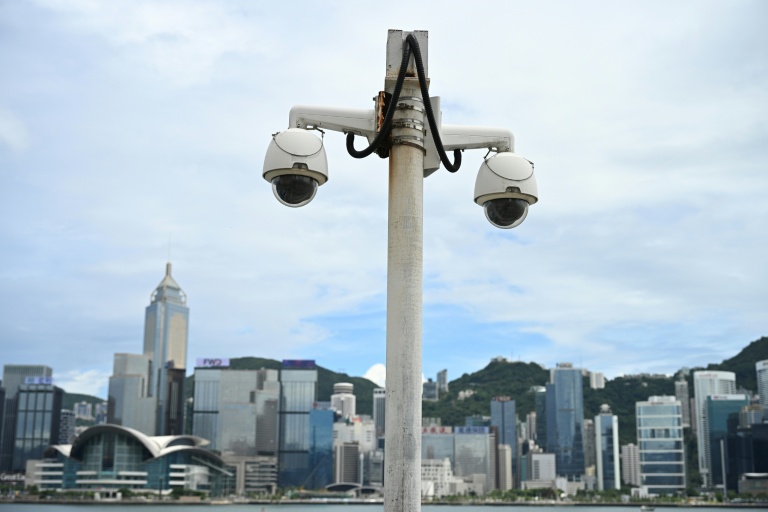Science
Hong Kong Plans Major Expansion of AI Facial Recognition Cameras

Hong Kong is set to significantly expand its surveillance capabilities by installing tens of thousands of cameras equipped with AI-powered facial recognition technology. This announcement was made by the city’s security chief, Chris Tang, during a legislative session on Friday. The initiative aligns Hong Kong more closely with mainland China, where advanced surveillance technologies are commonly employed in public spaces.
Currently, Hong Kong has installed nearly 4,000 closed-circuit television (CCTV) cameras as part of a police crime-fighting initiative. Plans indicate that this number will surge more than tenfold to a total of 60,000 cameras by 2028, according to official documents submitted to the legislature. The implementation of such extensive surveillance is part of the city’s broader strategy to enhance public safety and national security.
Chris Tang emphasized that artificial intelligence has already been utilized for crowd monitoring and license plate recognition. He stated, “That technology will naturally be applied to people, such as tracking a criminal suspect.” While he acknowledged the necessity of this technology, Tang did not provide a specific timeline for its rollout, noting that authorities are still deliberating on resource allocation and technology selection.
The SmartView programme is framed as essential for safeguarding national security and crime prevention. According to police reports, the use of CCTV cameras has helped solve over 400 cases and resulted in 787 arrests since the initiative began last year. Furthermore, the South China Morning Post reported that police officers could start using real-time facial recognition technology “as early as the end of this year.”
This move towards increased surveillance has sparked debate. Critics argue that such technology could grant the government excessive power to invade personal privacy. Concerns have also been raised regarding the potential for false matches, which could lead to wrongful arrests. In contrast, the European Union adopted an Artificial Intelligence Act in 2022 that prohibits the use of “real-time” remote biometric identification systems in public areas for law enforcement, with certain exceptions.
On the same day as the announcement, Hong Kong’s privacy watchdog, an independent statutory body, declined to comment on whether it had been consulted regarding the expansion plans for the surveillance programme.
As Hong Kong moves forward with this initiative, the implications for privacy and civil liberties will likely remain a focal point of discussion among residents and advocacy groups. The city’s approach could set a precedent for how similar technologies are deployed in other urban centers worldwide.
-

 Science3 months ago
Science3 months agoToyoake City Proposes Daily Two-Hour Smartphone Use Limit
-

 Top Stories3 months ago
Top Stories3 months agoPedestrian Fatally Injured in Esquimalt Collision on August 14
-

 Health3 months ago
Health3 months agoB.C. Review Reveals Urgent Need for Rare-Disease Drug Reforms
-

 Technology3 months ago
Technology3 months agoDark Adventure Game “Bye Sweet Carole” Set for October Release
-

 World3 months ago
World3 months agoJimmy Lai’s Defense Challenges Charges Under National Security Law
-

 Lifestyle3 months ago
Lifestyle3 months agoVictoria’s Pop-Up Shop Shines Light on B.C.’s Wolf Cull
-

 Technology3 months ago
Technology3 months agoKonami Revives Iconic Metal Gear Solid Delta Ahead of Release
-

 Technology3 months ago
Technology3 months agoApple Expands Self-Service Repair Program to Canada
-

 Technology3 months ago
Technology3 months agoSnapmaker U1 Color 3D Printer Redefines Speed and Sustainability
-

 Technology3 months ago
Technology3 months agoAION Folding Knife: Redefining EDC Design with Premium Materials
-

 Business3 months ago
Business3 months agoGordon Murray Automotive Unveils S1 LM and Le Mans GTR at Monterey
-

 Technology3 months ago
Technology3 months agoSolve Today’s Wordle Challenge: Hints and Answer for August 19









